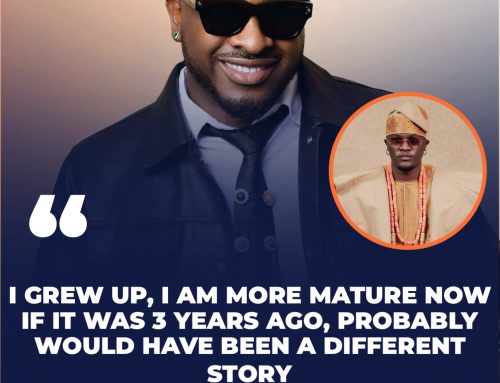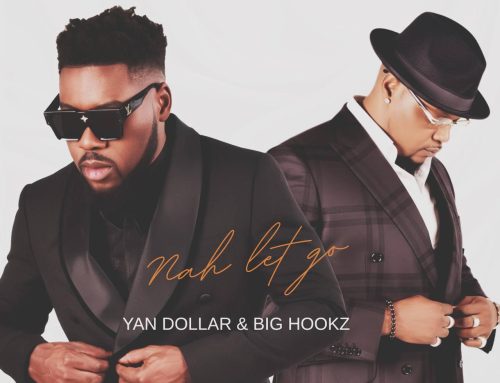Do you need a manager? Knowing when is the right time and finding a manager as an artist can be hard, especially a really good one. In this post I will explain some pros and cons answering on what makes a good manager and more! Here’s some fundamentals you need to keep in mind when dealing with managers and your needs.
As a music promoter, I can honestly attest to the fact that having a bad music manager can sink your dreamboat faster than a torpedo.
“Allow me to begin by saying that as an independent artist, you should never feel as if you weren’t good enough to be signed by a label. Instead, you were smart enough not to be raped and robbed by one! with some years into the music business , I have seen a lot of artists damage their careers by staying ignorant to how the music business operates. In my opinion, what you don’t know (or refuse to learn) can make the difference between success and failure. And ultimately, spell the difference between wealth and poverty. Having the right manager or management team is critical to the success of every artist. No single person, outside of the artist of course, is responsible for making dreams of success turn into reality, building a brand, and business around the artist than a manager. What’s more, a manager should be the most trusted person or persons within your camp. In some way, they are the CEO of the brand, which is YOU!
Everybody, regardless of who they are in the music business, needs proper representation. Most artists are too engulfed in the creative aspects of their careers to mind the store.
Furthermore, I think it is foolish to represent yourself, regardless of your experience or education level. The reason is simple: when it comes to themselves, most people are unable to be objective.
Even if you have a puppet manager and your hand up someone’s a$$ making their lips say your words, the illusion of having external business leadership is essential to your music career. It’s far better than representing yourself.
For the new artist, it’s difficult to know if you are in a bad management situation until its too late. If all you know is abuse and shady dealings, how will you know good business when you see it? More often than not, new artists fall victim to the appearance of success. Which is a crafty illusion propagated by con artists, thieves, and swindlers. If you have bankable talent, then these people are waiting in the alleys to sign you to some of the most horrific management contracts the music industry has ever known.
Nevertheless, if you don’t know, you don’t know. Gaining music industry experience without going to school, picking up a music business book, or being mentored by a music industry professional, leaves you with one option for learning; trial and error. Unfortunately, you don’t have valuable time to waste on experimentation, now do you? In hindsight, I wished I had read a book that told the unadulterated truth about bad management, but there were none available at the time.
Hopefully, at this point in your music career you understand what a manager does. You understand his roll within your organization. But if not, here’s a refresher.
The Duties of an Artist Manager
The official definition of a manager is someone who handles the business aspect of your musical career, whether you are a solo artist, DJ, band, or producer. Artist managers serve as intermediaries between the artist and the music industry. In many cases, managers are responsible for procuring artist’s record and publishing deals, songs to record, shows, producers to work with, and other career advancing opportunities. Furthermore, managers are supposed to guide your music career based on their vast expertise in their field; however, if you have an inexperienced manager who is too lazy to learn the music business, don’t expect much. On the flipside, not all managers are bad, there are a few managers out there who really know what they’re doing and are doing well as of now. Getting a top-shelf manager isn’t easy, but in order to get the best you have to do your due diligence. Finding a good manager is difficult because there are far too many bad managers that will steal, lie, and cheat you out of your hard earned royalties, publishing, and music career. Despite the fact that some managers are bloodsucking leeches with no morals, ethics, or scruples, managers are unavoidable and certainly a necessary evil; like I said before, you cannot represent yourself. When seeking a manager to guide your music career, you must do your homework. Think of yourself as part of a unit investigating a murder and leave no stone unturned! Dare to do the opposite and the murder investigation will be the murdering of your music career.
Choosing an Artist Manager
No matter what genre of music or career path chosen by an artist, bad management can really do irreparable damage to one’s career. To be blunt, bad management can really F’up your chances of ever succeeding in the music industry. Forget everything you think you know about artist management. Contrary to the popular myth, you don’t work for your manager. In the relationship between an artist and manager, the manager is actually in the subordinate role. Let’s be clear, your manager works for you… you don’t work for them!
In the music or entertainment industries, the term manager refers to a person that assists artists in all matters of their music careers. Therefore, as a manager’s employer, you are entitled to all of the rights, benefits, and privileges associated with the employer-employee relationship. More specifically, an artist manager’s job is to guide and counsel an artist’s music or entertainment career for the benefit of building their brand. In addition, an artist manager assists artists in the administrative tasks associated with the business of music, and advises them on important business decisions.
How Much is Their Contribution Worth?
On average, artist management compensation is about 20%, of the net revenue of income derived from all aspects of an artist’s music career. However, compensation can range from as low as 5% (sweet deal) up to as high as 30% (you’re getting screwed).
Power of Attorney
When an artist transfers total legal control of his or her music career or personal affairs over to a manager or management group, this is known as giving someone the power of attorney. The bottom line is that the person who has power of attorney can sign contracts in your name, contracts that carry the full weight of law. This is no joke.
Granting power of attorney allows your management to make financial and career-altering decisions that may or may not screw your life up beyond restoration. When you sign away your decision-making rights, business transactions can be conducted on your behalf without your consent or knowledge. In addition, an artist manager who has power of attorney over you. That means they can sign you to a record deal that makes you a virtual slave. And, you are legally obligated to honor that agreement or get your a$$ sued.
Granting power of attorney to a bad manager is like being blindfolded in a dark room while being poked by sharp sticks until you bleed to death. In the dark, there is a looming threat from every direction. But you can’t see it coming and you are unable to defend yourself. It’s not a matter of whether you will be stuck or not, it’s a matter of when you will be stuck and roasted like a pig. Some wounds can be lethal, and the emotional scars of bad management can cripple music careers.
Continue reading on the next page (by Clicking number 2 / Click (here ))







Wooow I have learn a lot on the management and the business
Good stuff!
Nice article 237showbiz or whoever wrote it. Am just liking everything detail of this article. Somewhere you said it is advisable to get a family member run the manager post if you don’t get any… And then I read bout the qualities or what you should be looking out for when you wanna hire an artist manager. What if the family member has no experience in all that buh at least loves your music and knows to what level you wanna take your music to, do they still stand a chance to be used as a manager. Yes of course and I think you gave a good example, Martin Enow doing the ground works for Stanley and we all can see where they are now. I don’t know much but did he have all those qualities? Well I think he learned along the way. Like you said again, when you hire an amateur, you are left with one option “try and error” there ain’t much time doing all that but I think it is worth the try cos Martin Enow should be a great example. I think the best artist manager should be a family member who is ready to learn the biz cos come to think of it, there ain’t no skool in Kamer for that. Studying that online too no be lait hein, it is expensive too, buh like most Cameroonians, we are smart and can learn faster along the way in a new lane. Think Salatiel or whoever is managing Mr Leo, mehn they are doing a great job. They must’ve learned that online as well as along the way as the music career kept on gaining new grounds.
This article is super intriguing. I just love every part of it. Thanks for sharing mehn…
Extremly interesting, i appreciate every single line
This is the hidden truth. Thanks a lot
This is very interesting and beneficial not only to artists but others fields, I am a model and with my knowledge in that world this brief words of yours is helpful in that field too. It was a pleasure learning this thanks.
Hope they can stay tune to read this and learn from it
This is real. Our artists need to read this. It’s just that you can hide millions in note books and Cameroonians will never find it.
I really appreciate this post. I¡¦ve been looking all over for this! Thank goodness I found it on Bing. You have made my day! Thank you again
Regards
Ross Alisha
Thank you for this great counselling
Hello every one, here every one is sharing such familiarity, so it’s fastidious to read this webpage, and I used to go to see this blog all the time.